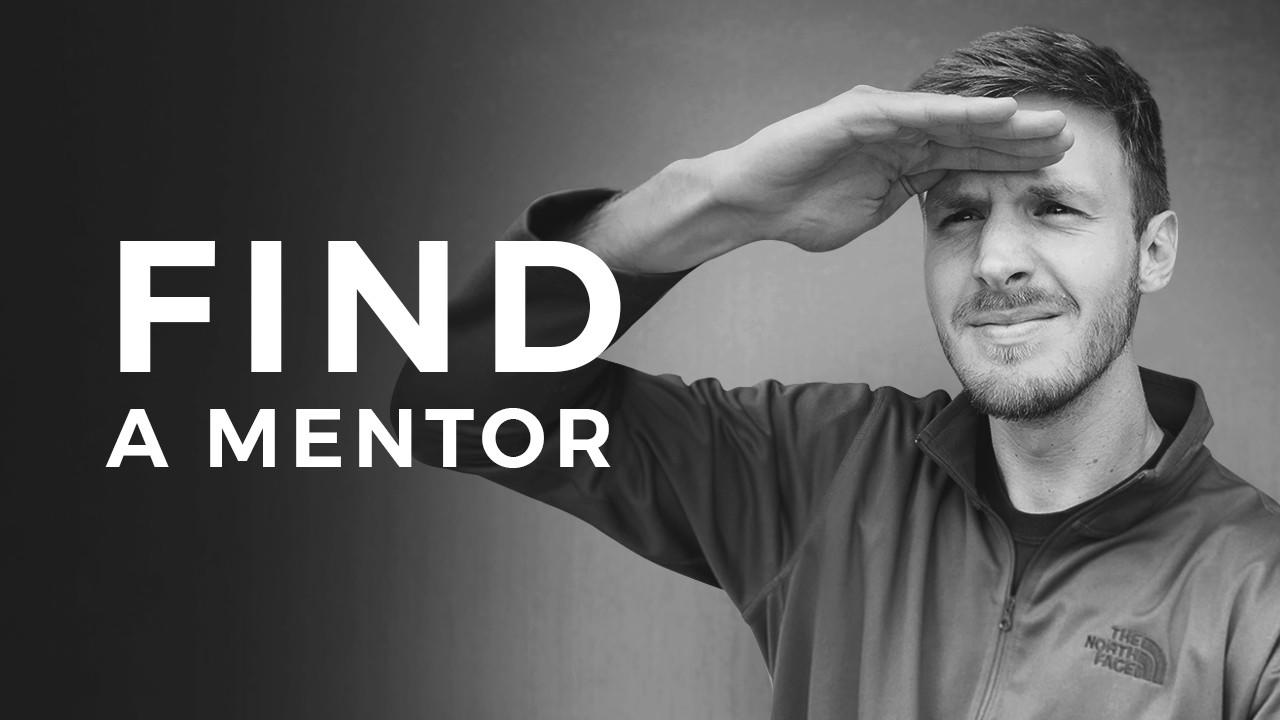
The Ultimate Guide to Finding a Mentor Who Will Help You Become the Best Version of Yourself
Mentorship is a powerful relationship that can help you achieve your career goals. A mentor is someone who is more experienced than you and who is willing to share their knowledge, wisdom, and guidance. Mentors can help you learn new skills, navigate your career path, and overcome challenges.
It can be difficult to achieve your goals without the guidance and support of a mentor.
- 70% of Indian job seekers fail to land a job within the first 6 months of their search.
- Only 25% of Indian startups succeed in the long term.
- Only 10% of Indian women reach senior leadership positions in the corporate world.
- 45% of Indian professionals who do not have a mentor say that they feel lost and confused about their careers.
- 35% of Indian professionals who do not have a mentor say that they have difficulty finding new job opportunities.
- 25% of Indian professionals who do not have a mentor say that they feel unmotivated and uninspired at work.
If you’re serious about achieving your career goals, finding a mentor is one of the best things you can do. But how do you find a mentor? And how do you build a successful mentoring relationship?
There are many benefits to having a mentor. Here are a few:
- Mentors can help you learn new skills. Mentors can teach you the skills you need to succeed in your career. They can also help you stay up to date on the latest trends and technologies.
- Mentors can help you navigate your career path. Mentors can help you identify your career goals and develop a plan to achieve them. They can also give you advice on how to negotiate a salary, network with people in your field, and prepare for job interviews.
- Mentors can help you overcome challenges. Mentors can provide support and guidance as you face challenges in your career. They can also help you learn from your mistakes and grow as a professional.
Benefits of mentorship
- A study by LinkedIn found that mentored professionals are 5x more likely to be promoted than non-mentored professionals.
- A study by the University of California, Berkeley found that mentored students are more likely to graduate from college and earn higher salaries after graduation.
- A study by the American Psychological Association found that mentorship can help reduce stress and improve mental health.
Finding a mentor can take some time and effort, but it is worth it in the long run.
Here are some tips on how to find a mentor:
- Ask your friends, family, and professors for recommendations.
- Attend industry events and meetups.
- Connect with people on LinkedIn.
- Reach out to people you admire and ask if they would be willing to mentor you.
- Consider joining a mentorship program.
Quotes
- “A mentor is someone who sees more talent and ability within you, than you see in yourself, and helps you to bring it out.” – Bob Proctor
- “Mentorship is a brain to pick, a shoulder to cry on, a compass to guide, and a mirror to show you what you can be.” – John Crosby
- “The best mentors are those who have learned from their mistakes and who are willing to share their wisdom with others.” – Unknown
Do you know?
N.R. Narayana Murthy, the co-founder of Infosys, is a great example of someone who has benefited from mentorship. When Murthy was a young man, he was mentored by a professor at the Indian Institute of Technology Madras. The professor helped Murthy to develop his entrepreneurial skills and to launch Infosys.
Murthy has said that his mentor was “instrumental” in his success. “He taught me everything I know about business,” Murthy has said. “I am forever grateful for his guidance and support.”
How to find a mentor
There are many ways to find a mentor. Here are a few tips:
- Look for people in your field who you admire and respect. Reach out to them and ask if they would be willing to be your mentor.
- Attend industry events and meetups. This is a great way to meet people in your field and to learn about their work.
- Join professional organizations. Many professional organizations offer mentorship programs.
- Ask your friends, family, and colleagues if they know anyone who would be a good mentor for you.
Here are a few different types of mentors:
- Career mentors: Career mentors can help you with your career development. They can help you learn new skills, develop your network, and make decisions about your career path.
- Technical mentors: Technical mentors can help you learn new technical skills and stay up-to-date on the latest trends and developments in your field.
- Industry mentors: Industry mentors can help you learn about the inner workings of your industry and connect with key people in your field.
- Personal mentors: Personal mentors can provide you with guidance and support on all aspects of your life, including your career, your relationships, and your wealth matters etc.
Different mentor/mentee engagement models:
No matter what type of mentor/mentee engagement model you choose, the most important thing is to find a mentor who is a good fit for you and who can help you to achieve your goals.
- One-on-one mentoring: This is the most common type of mentor/mentee relationship. In a one-on-one relationship, the mentor and mentee meet regularly to discuss the mentee’s goals, challenges, and progress.
- Group mentoring: In a group mentoring relationship, a mentor works with a group of mentees. This type of mentoring can be effective for mentees who are learning about a new topic or skill.
- Reverse mentoring: In a reverse mentoring relationship, a mentee mentors a mentor. This type of mentoring can be beneficial for both the mentee and the mentor. It can help the mentee to develop their leadership skills and the mentor to stay up-to-date on the latest trends and developments in their field.
- Peer mentoring: In a peer mentoring relationship, two professionals who are at the same level in their careers mentor each other. This type of mentoring can be beneficial for professionals who are looking to develop their skills and knowledge in a supportive environment.
Step-by-step guide on finding mentors online and offline:
Online techniques:
- Identify your interests and goals. What do you want to achieve in your career? What skills do you want to develop? Once you know what you’re looking for, you can start to identify potential mentors.
- Use social media. LinkedIn is a great platform for finding mentors. You can search for people in your field who have the experience and expertise that you’re looking for. You can also reach out to people you admire and ask if they would be willing to mentor you.
- Join online communities. There are many online communities for professionals in different fields. These communities can be a great way to connect with potential mentors and learn from others.
- Attend online events. There are many online events and webinars that focus on professional development. These events can be a great way to learn new skills and meet potential mentors.
Offline techniques:
- Attend industry events. Industry events are a great way to meet professionals in your field. You can learn about new opportunities, make connections, and meet potential mentors.
- Volunteer in your field. Volunteering is a great way to gain experience, meet new people, and make a positive impact on your community. It can also be a great way to meet potential mentors.
- Join professional organizations. Professional organizations can be a great way to meet people in your field and learn from others. They can also be a great way to find mentors.
- Ask your friends, family, and professors for recommendations. If you know someone who has a mentor, ask them for a recommendation. They may be able to connect you with their mentor or someone else who would be a good fit for you.
Tips for finding a good mentor:
- Look for someone who has the experience and expertise that you’re looking for.
- Find someone who is willing to invest time in you.
- Find someone who you feel comfortable talking to and who you can trust.
- Make sure that you have a good rapport with your mentor.
How to overcome common challenges in mentoring relationships
Even the most successful mentoring relationships can face challenges. Here are a few tips from Learnpact Program Success Advisors on how to overcome common challenges:
- Communication challenges: If you are having communication challenges with your mentor, talk to them about it. Be honest about what you need from them and how you would like to communicate with them.
- Unrealistic expectations: It is important to have realistic expectations for your mentoring relationship. Remember that your mentor is a volunteer, and they may not be able to give you as much time as you would like.
- Different personalities: If you and your mentor have different personalities, it can be helpful to find common ground and focus on your shared goals.
Once you have found a few potential mentors, reach out to them and introduce yourself. Explain why you’re interested in having them as a mentor and what you’re hoping to achieve. Be respectful of their time and don’t expect them to mentor you for free.
If you’re lucky enough to find a mentor who is willing to work with you, be grateful and make the most of the opportunity. Ask questions, learn from their experience, and be open to feedback.


